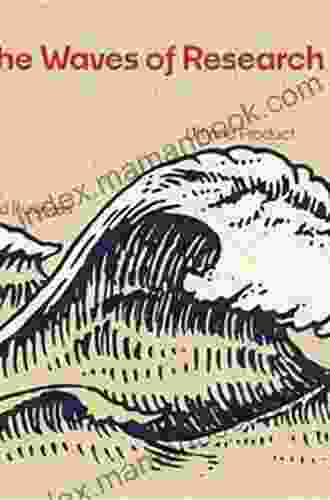The Evolution of Literacy Education: A Comprehensive Journey Through History

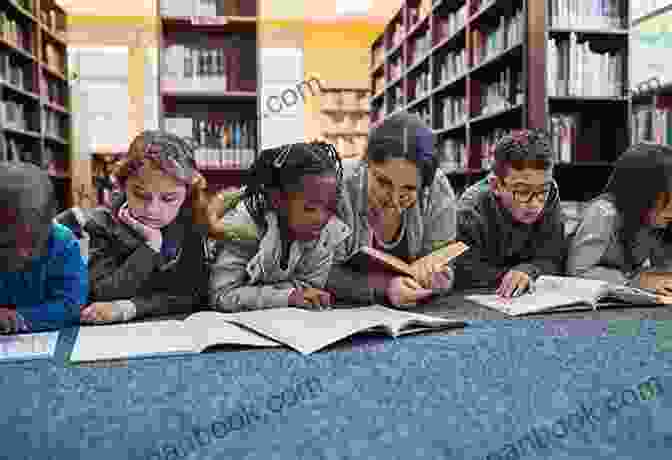
Literacy education, the cornerstone of human progress, has undergone a transformative journey throughout history. It has evolved from ancient scribbles to the digital age, with each era leaving an indelible mark on the ways we acquire and disseminate knowledge. This article delves into the rich history of literacy education, tracing its origins, innovations, and the profound impact it has had on societies across the globe.
4.8 out of 5
| Language | : | English |
| File size | : | 6201 KB |
| Text-to-Speech | : | Enabled |
| Enhanced typesetting | : | Enabled |
| Word Wise | : | Enabled |
| Print length | : | 400 pages |
| Screen Reader | : | Supported |
Preliterate Societies: The Dawn of Communication
Before the advent of writing, communication relied primarily on oral traditions, storytelling, and pictorial representations. Cave paintings and rock carvings served as early forms of expression, conveying messages and preserving cultural histories. In these preliterate societies, knowledge was passed down through generations, with elders serving as custodians of collective memory.
Mesopotamia: Birth of Written Language
The emergence of written language in Mesopotamia around 3500 BCE marked a pivotal moment in human history. The Sumerian civilization developed cuneiform, a wedge-shaped writing system, which they used for record-keeping, administrative purposes, and literary expression. The invention of writing not only facilitated the preservation of knowledge but also led to the development of specialized scribes, who became the guardians of literacy.
Ancient Egypt: Scribal Education and the Power of Literacy
In ancient Egypt, literacy was highly valued, and the scribal profession held immense prestige. Scribes were trained in specialized schools, where they mastered hieroglyphic writing, mathematics, and other subjects essential for administrative and religious roles. Literacy was closely associated with power and status, as it provided access to written records, knowledge, and decision-making processes.
Greece and Rome: The Golden Age of Literacy
The rise of ancient Greece and Rome marked a golden age for literacy education. In Greece, literacy became widespread, and citizens were encouraged to participate in public debates and civic life. Philosophers like Socrates and Plato emphasized the importance of critical thinking and education for all. In Rome, literacy was also highly valued, and schools were established to educate both boys and girls.
The Middle Ages: Monasteries as Centers of Learning
During the Middle Ages, literacy education was largely confined to monasteries. Monks preserved ancient texts, produced illuminated manuscripts, and established scriptoria, or writing workshops. The Church played a dominant role in literacy education, using it to spread religious knowledge and maintain its authority. Literacy became increasingly important for ecclesiastical careers and intellectual pursuits.
The Renaissance: Revival of Classical Learning
The Renaissance witnessed a renewed interest in classical learning and a revival of literacy education. Humanist scholars sought to rediscover and study ancient Greek and Roman texts, emphasizing the importance of secular education and the power of the written word. Literacy became a key tool for exploring new ideas, challenging established authorities, and shaping the course of history.
The Reformation: Literacy for the Masses
The Protestant Reformation sparked a widespread demand for literacy among the common people. Martin Luther translated the Bible into German, making it accessible to a broader audience. The spread of printing technology further promoted literacy, as books became more affordable and widely available. Literacy opened up new opportunities for religious engagement, personal growth, and economic advancement.
The Enlightenment: Literacy as a Foundation for Progress
The Enlightenment emphasized the importance of reason, science, and education as the foundations for human progress. Literacy became an indispensable tool for accessing knowledge, participating in public discourse, and challenging traditional beliefs. Philosophers like Voltaire and Rousseau argued for the universal right to education, regardless of social status or gender.
The 19th Century: Mass Education and Literacy Campaigns
The 19th century witnessed the rise of public education systems and widespread literacy campaigns. Governments across Europe and North America recognized the importance of literacy for economic growth, social mobility, and political participation. Schools became widely accessible, and literacy rates soared. However, disparities in literacy levels persisted, with significant gaps between urban and rural areas, and between different socioeconomic groups.
The 20th Century: Innovations in Literacy Education
The 20th century saw continued expansion of literacy education globally. Educational psychologists and theorists developed new methods and approaches to teaching literacy, including the whole language approach and phonics-based instruction. The rise of electronic media, including radio and television, also played a role in promoting literacy and fostering a culture of reading.
The 21st Century: Digital Literacy and the Future of Learning
The 21st century has ushered in an era of digital literacy. With the advent of computers, the internet, and mobile devices, literacy has taken on new dimensions. Digital technologies have transformed the ways we access, create, and communicate information, requiring new skills and literacies. Educators and policymakers are exploring innovative approaches to literacy education that embrace technology and prepare students for the demands of the digital age.
The history of literacy education is a testament to the transformative power of the written word and the quest for knowledge. From its humble beginnings in preliterate societies to the digital age, literacy has been a catalyst for human progress, empowering individuals to communicate, innovate, and shape their world. As we continue to navigate the ever-evolving landscape of literacy, it is essential to recognize its enduring importance and to ensure equitable access to literacy education for all. By embracing the lessons of the past and forging ahead with innovation, we can harness the full potential of literacy to create a more just, enlightened, and literate future.
4.8 out of 5
| Language | : | English |
| File size | : | 6201 KB |
| Text-to-Speech | : | Enabled |
| Enhanced typesetting | : | Enabled |
| Word Wise | : | Enabled |
| Print length | : | 400 pages |
| Screen Reader | : | Supported |
Do you want to contribute by writing guest posts on this blog?
Please contact us and send us a resume of previous articles that you have written.
 Top Book
Top Book Novel
Novel Fiction
Fiction Nonfiction
Nonfiction Literature
Literature Paperback
Paperback Hardcover
Hardcover E-book
E-book Audiobook
Audiobook Bestseller
Bestseller Classic
Classic Mystery
Mystery Thriller
Thriller Romance
Romance Fantasy
Fantasy Science Fiction
Science Fiction Biography
Biography Memoir
Memoir Autobiography
Autobiography Poetry
Poetry Drama
Drama Historical Fiction
Historical Fiction Self-help
Self-help Young Adult
Young Adult Childrens Books
Childrens Books Graphic Novel
Graphic Novel Anthology
Anthology Series
Series Encyclopedia
Encyclopedia Reference
Reference Guidebook
Guidebook Textbook
Textbook Workbook
Workbook Journal
Journal Diary
Diary Manuscript
Manuscript Folio
Folio Pulp Fiction
Pulp Fiction Short Stories
Short Stories Fairy Tales
Fairy Tales Fables
Fables Mythology
Mythology Philosophy
Philosophy Religion
Religion Spirituality
Spirituality Essays
Essays Critique
Critique Commentary
Commentary Glossary
Glossary Bibliography
Bibliography Index
Index Table of Contents
Table of Contents Preface
Preface Introduction
Introduction Foreword
Foreword Afterword
Afterword Appendices
Appendices Annotations
Annotations Footnotes
Footnotes Epilogue
Epilogue Prologue
Prologue M L Gardner
M L Gardner Courtney Konstantin
Courtney Konstantin Preethi Venugopala
Preethi Venugopala Connor Lynndan
Connor Lynndan A M Van Dorn
A M Van Dorn Andra Riemhofer
Andra Riemhofer Lisa Vanallen
Lisa Vanallen Patricia Whitfield
Patricia Whitfield Leonard Sax
Leonard Sax Sunil Kumar
Sunil Kumar Melody Rogers
Melody Rogers Kimberly Mattina
Kimberly Mattina Charles Bosworth
Charles Bosworth Ken Shores
Ken Shores Maritzabel Claros Ferrer
Maritzabel Claros Ferrer Aaron Brummett
Aaron Brummett Yu Ren Dong
Yu Ren Dong Sue Trace Lawrence
Sue Trace Lawrence Floyd D Beachum
Floyd D Beachum Vandana Verma
Vandana Verma
Light bulbAdvertise smarter! Our strategic ad space ensures maximum exposure. Reserve your spot today!

 Calvin FisherDirectives of Silent Force: An In-Depth Exploration of the Gaming Masterpiece
Calvin FisherDirectives of Silent Force: An In-Depth Exploration of the Gaming Masterpiece
 Richard AdamsThe Day the World Came to Town: An Extraordinary True Story of Community and...
Richard AdamsThe Day the World Came to Town: An Extraordinary True Story of Community and... Ivan TurgenevFollow ·17.8k
Ivan TurgenevFollow ·17.8k Robin PowellFollow ·4.3k
Robin PowellFollow ·4.3k Robert HeinleinFollow ·9.3k
Robert HeinleinFollow ·9.3k Jerome PowellFollow ·15.5k
Jerome PowellFollow ·15.5k Joe SimmonsFollow ·4.2k
Joe SimmonsFollow ·4.2k Kenneth ParkerFollow ·17.5k
Kenneth ParkerFollow ·17.5k Darren NelsonFollow ·10.4k
Darren NelsonFollow ·10.4k Noah BlairFollow ·7.1k
Noah BlairFollow ·7.1k

 Dwight Bell
Dwight BellSlightly Higher Interval Training For 5k Runners: A...
Interval training has become an...
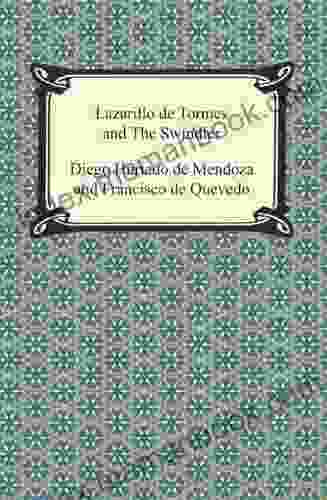
 Jordan Blair
Jordan BlairLazarillo de Tormes and the Swindler: A Tale of Deception...
The story of Lazarillo de...
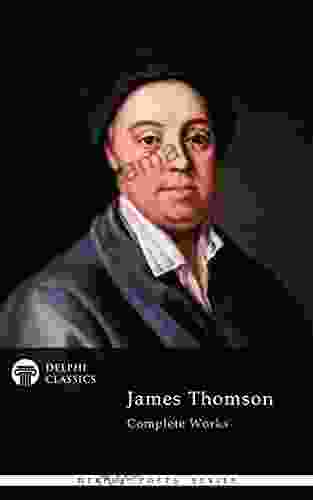
 Grayson Bell
Grayson BellDelphi Complete Works Of James Thomson Illustrated Delphi...
: Unveiling the...
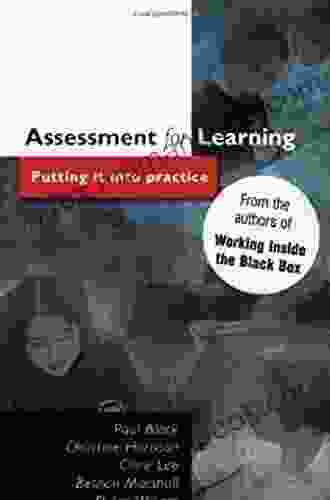
 Cooper Bell
Cooper BellAssessment For Learning (UK Higher Education OUP...
Assessment plays a crucial role in higher...

 Luke Blair
Luke BlairThis Is How Knew: A Comprehensive Guide to Unlocking Your...
Have you ever wondered if...
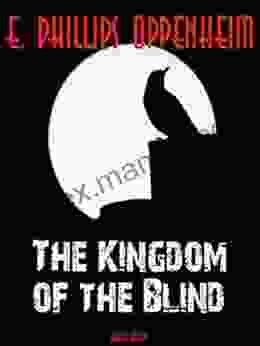
 Forrest Blair
Forrest BlairExploring the Kingdom of the Blind: A Deep Dive into an...
The Kingdom of the...
4.8 out of 5
| Language | : | English |
| File size | : | 6201 KB |
| Text-to-Speech | : | Enabled |
| Enhanced typesetting | : | Enabled |
| Word Wise | : | Enabled |
| Print length | : | 400 pages |
| Screen Reader | : | Supported |


